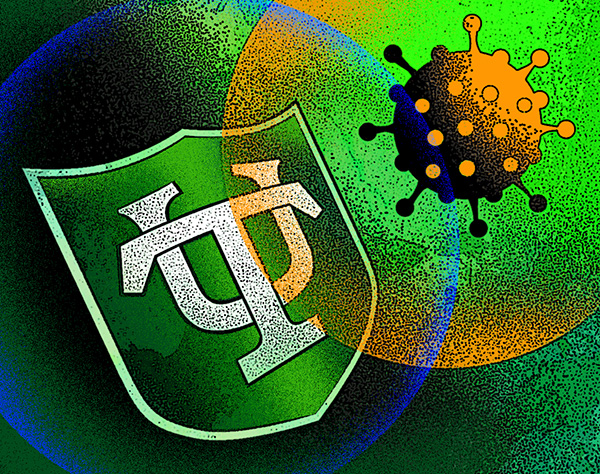
In early February, not long after China locked down the city of Wuhan to prevent the spread of a new and deadly virus, the Freeman School made the decision to move the start of our one-year graduate programs — which typically draw a large number of international students — from June to August to allow for potential impacts from this new and unpredictable menace.
At the time, of course, we did not know that the virus would erupt into the devastating pandemic it became, but we recognized it as a significant threat and acted quickly to mitigate its potential effects. In short succession, we, in concert with the Idea Village, canceled New Orleans Entrepreneur Week, which would have brought hundreds of visitors from across the country to downtown New Orleans, and then, along with the university, shut down in-person classes and shifted to
online learning for the remainder of the semester.
The subsequent weeks and months were challenging for both our students and our faculty and staff, but we continued to respond to this historic crisis with urgency, reason, ingenuity and, most of all, resilience. This shouldn’t be surprising. In the aftermath of Hurricane Katrina in 2005, Tulane and the Freeman School committed to the almost unthinkable notion of reopening the campus less than five months after floodwaters inundated New Orleans. While the situation this
year was very different, the challenge was similarly daunting: How do we as an institution fulfill our teaching, research and service missions in the midst of a global pandemic? Our classroom instruction has traditionally emphasized action learning and a highly interactive experience. How could we adapt given the constraints of social distancing and online learning? Our community programs typically sendfaculty and students into the city to engage with local businesses. How could we fulfill our commitment to service in this new environment?
After five months of nearly nonstop planning and preparations, this fall we safely and successfully enrolled more than 3,200 students for in-person and online classes. This is a remarkable testament to the hard work of our faculty and staff, and I’m proud to say that they rose to the challenge with the unwavering resilience our stakeholders have come to expect.
This issue of Freeman Business pays tribute to that theme by highlighting some of the initiatives, programs and activities our faculty and staff spearheaded over the last eight months in response to COVID-19. The cover story of this issue profiles the Lepage Strategic Advisers Program, which our Lepage Center for Entrepreneurship and Innovation rolled out in record time to assist local small businesses impacted by the pandemic. This wasn’t the Lepage Center’s only example
of resilience. When COVID-19 threatened to cancel the TulaneBusiness Model Competition, one of its biggest annual events, the center reorganized the previously in-person competition into a virtual event every bit as educational and meaningful as the live competition.
As Tulane University began to lay out plans to bring students back to campus for a hybrid model of education that combined synchronous in-person and remote learning, we recognized the need to ensure that our faculty members had the tools they needed to succeed in thisnew learning environment. Beginning in June, we invested more than $1.6 million to upgrade the teaching technology in 26 classrooms — spanning both our uptown and downtown campuses — with new state-of-the-art monitors, cameras and ambient microphones which enable students attending classes virtually to seamlessly interact with
instructors and students in the classroom. But enhanced technology was just one part. In consultation with Tulane’s School of Professional Advancement, we engaged instructional designers to work with faculty members one-on-one to reinvent their courses for online delivery. More than 20 Freeman faculty members collaborated with designers over the summer to develop online courses every bit as rigorous andengaging as their in-person classes, and more faculty members will participate in that process this spring.
As we approach the end of the fall semester and look forward to a better and brighter new year, I’m more optimistic about the future than ever. Crises often lead to innovation, and the technological and pedagogical innovations we introduced this year will benefit Freeman long after the pandemic fades, enabling us to easily and agilely deliver more programs to more students in more locations. While there is nothing positive one can say about the death and economic destruction of COVID-19, I believe we will emerge from this crisis as a stronger school, thanks in great part to the extraordinary resilience of our faculty, staff and students.
Ira Solomon, Freeman School dean

